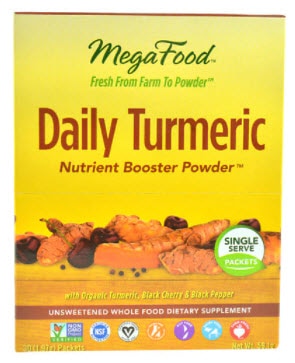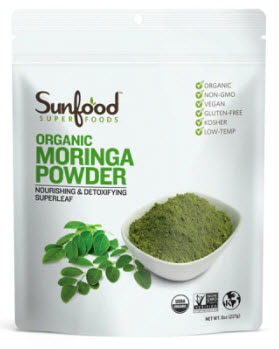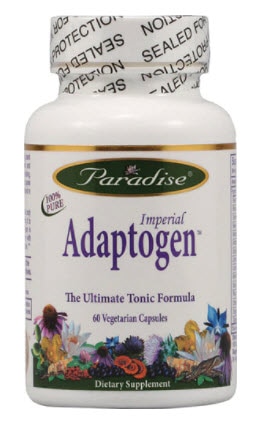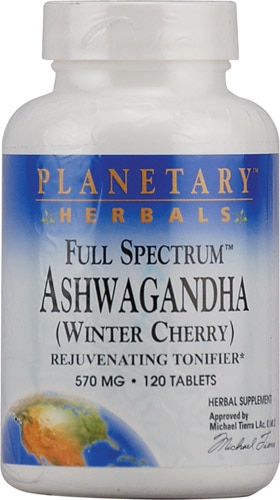If you've heard of
adaptogens, you're probably aware that they are associated mainly with
mental stress reduction. While this is true, these plant nutrients may also help protect you from the effects of physical stress, including inflammation and soreness. What's more, adaptogenic herbs may help support healthy energy levels, combat fatigue and encourage a positive mindset that helps you push through challenging training sessions.
†

Whether you're looking for something to help you improve your performance or alleviate the effects of post-workout muscle soreness and inflammation, there's an adaptogen that can help. Here are 10 of the best adaptogens to help support your exercise performance and
recovery.
Adaptogens List for Fitness
Relora
Relora has been
clinically studied for its ability to combat fatigue and support athletic stamina and performance. As a stress-reducing adaptogen, it benefits athletes by may help mitigate stress caused by intense exercise on top of everyday living.
†
 Turmeric
Turmeric
This root, commonly used for culinary purposes, is also an adaptogen.
Turmeric contains potent antioxidants and
anti-inflammatory components that support your ability to recover after a workout. Better recovery means you can get back to training sooner without ill effects.
†
Ginseng
Ginseng is a popular adaptogen known for supporting energy and combating fatigue, which could help you perform better in your workouts.
Researchers believe that ginseng works by supporting your cells' energy production processes. There are many varieties of ginseng, although
Panax Ginseng is the type most used energy support.
†
Cordyceps
Cordyceps is a type of mushroom that is said to help support production of adenosine triphosphate (ATP), a fuel for your cells that also provides energy for high-intensity training sessions. Growing in popularity due to
promising research, cordyceps is also believed to support healthy oxygen uptake and blood flow, which may promote more efficient exercise.
†
Reishi
Another powerful mushroom,
reishi, may help with post-workout muscle recovery and relaxation, thus contributing to improved quality of sleep and potentially supporting immune system health. If you're an endurance athlete, you may find reishi particularly useful since it can help mitigate the effects of a large volume of training.
†
 Moringa
Moringa
Moringa is well-known as a
natural energy supplement. It contains 40 antioxidants and 90 different nutrients, including calcium, potassium, iron and protein. Moringa may also be beneficial for supporting a healthy inflammatory response in the body, helping to improve recovery post-workout.
†
Rhodiola rosea
The adaptogen
rhodiola rosea works by helping to combat mental fatigue during exercise, keeping you feeling focused and helping to improve your performance.
Research shows that
rhodiola rosea supports the ability to exercise longer by enhancing your perception of exercise enjoyment, helping you to burn more calories in the process.
†
Maca
The mythology surrounding
maca is a considerable draw for using this ancient root. The story goes that the Incas used maca to push them through grueling marches through mountains into battle with next to no food. Science has revealed that maca is an excellent energy-supporting substance that contains plenty of fiber, calcium, iron, vitamin C and fatty acids.
†
Ginger
Ginger is well-known for its ability to support a healthy inflammatory response in the body. It's been
studied extensively as a pain reliever for post-workout recovery as well. If you experience
delayed onset muscle soreness (DOMS) often, ginger could be beneficial for you.
†
Holy basil
Holy basil is an adaptogenic herb that supports mental clarity and tranquility.
Researchers have studied holy basil for its effects on supporting a healthy inflammatory response and combating physical stress from exercise.
†
How to use adaptogens
Adaptogens come in various forms, including whole dried or fresh, as a pill or capsule, and in powder form. If you're looking for creative ways to add adaptogens to your wellness routine, there are a few ways that you can add them to foods or beverages.
- Try making a delicious smoothie bowl
- Stir them into oatmeal
- Add them to a delicious healthy pudding recipe
- Try making hot cocoa with added adaptogens such as maca which pairs well with chocolate
- Drink the better tasting ones such as ginger and turmeric in a tea
- Look for adaptogenic coffee mixes that contain cordyceps or reishi mushroom
- Combine them into a tonic by infusing several adaptogens with coconut milk
†These statements have not been approved by the Food and Drug Administration. These products are not intended to diagnose, treat, cure or prevent disease.
Featured product:

 Whether you're looking for something to help you improve your performance or alleviate the effects of post-workout muscle soreness and inflammation, there's an adaptogen that can help. Here are 10 of the best adaptogens to help support your exercise performance and recovery.
Whether you're looking for something to help you improve your performance or alleviate the effects of post-workout muscle soreness and inflammation, there's an adaptogen that can help. Here are 10 of the best adaptogens to help support your exercise performance and recovery.
 Turmeric
Turmeric Moringa
Moringa



